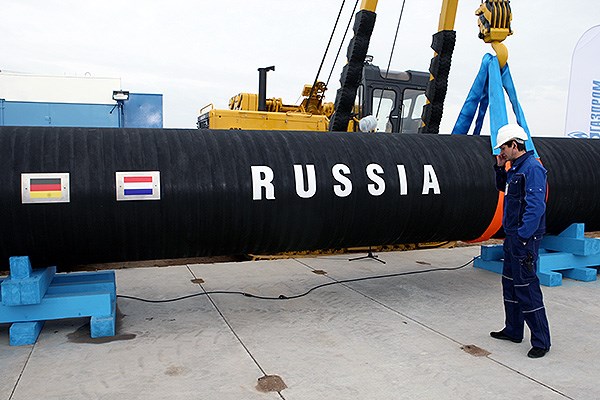U.S. preparing new sanctions against Nord Stream 2
The U.S. is preparing a new round of sanctions against the Nord Stream 2 project, Richard Grenell, the former U.S. ambassador to Germany and now acting director of U.S. national intelligence, told Handelsblatt.
Grenell said that he met last week with senators and members of the lower house of Congress, who support additional bipartisan measures.
"The tightening of sanctions is welcomed by both parties," Grenell said, adding that "the bill can be passed quickly despite the presidential election campaign."
It is not yet clear in what form the sanctions will be imposed. One option is to ban cooperation with Gazprom-affiliated companies that are engaged in the maintenance of deep-sea pipelines, Handelsblatt writes. In addition, possible sanctions against Russian gas buyers are being discussed.
The construction of the 10 billion euro "Northern Stream 2" was stopped at the end of December last year, with only 100 km of pipe remaining to be laid at the bottom of the Baltic Sea.
This forced Russian officials to come to the negotiating table with Ukraine and conclude a new transit contract, despite numerous promises to completely terminate it from 2020.
Russian President Vladimir Putin assured that Gazprom is able to complete the pipeline on its own and launch it at the latest in the first quarter of 2021.
The only vessel available to Gazprom, which is capable of laying pipes at the desired depth, Akademik Chersky, left the port of Nakhodka in February and on May 9 reached Europe, dropping anchor near the port of Mukran in Germany, where the logistics terminal of the gas pipeline project is located.
The port also houses the Fortuna tube-laying barge belonging to the Russian Company Mezhregiontruboprovodstroy, which the Danish authorities have deemed to be non-compliant with safety requirements. The vessel does not have a dynamic positioning system.
On May 2019, amendments to the Gas Directive came into force in Europe, which extend to offshore gas pipelines coming from third countries. According to EU rules, a company is forbidden to be both the gas supplier and the owner of the pipeline. For Gazprom, this means that it is impossible to use more than 50% of Nord Stream 2's capacity even if it is completed.
In May, the EU court rejected Nord Stream 2 AG's claim against the European Gas Directive, and Germany's Federal Network Agency denied it the exemption to the general rules.
